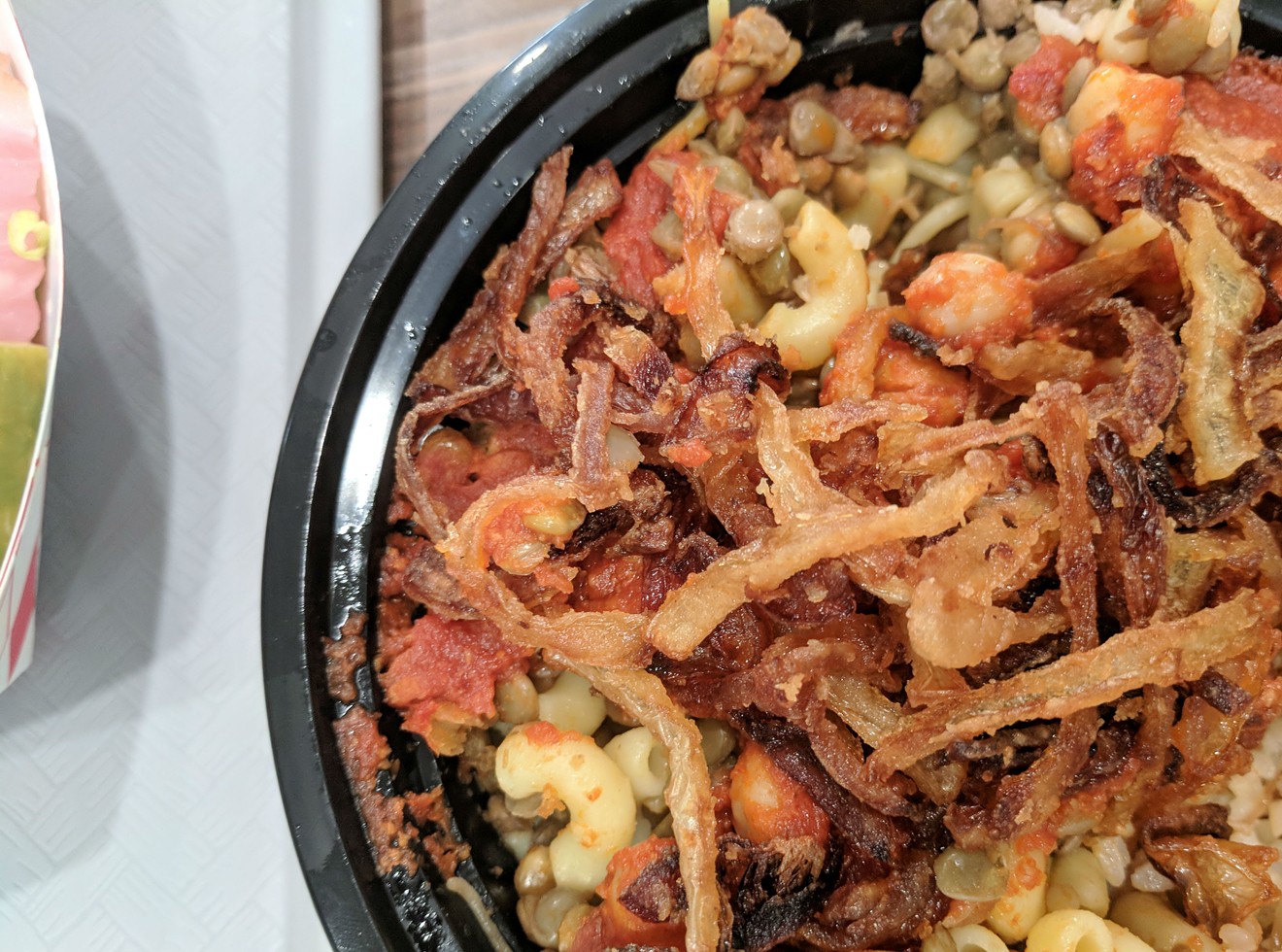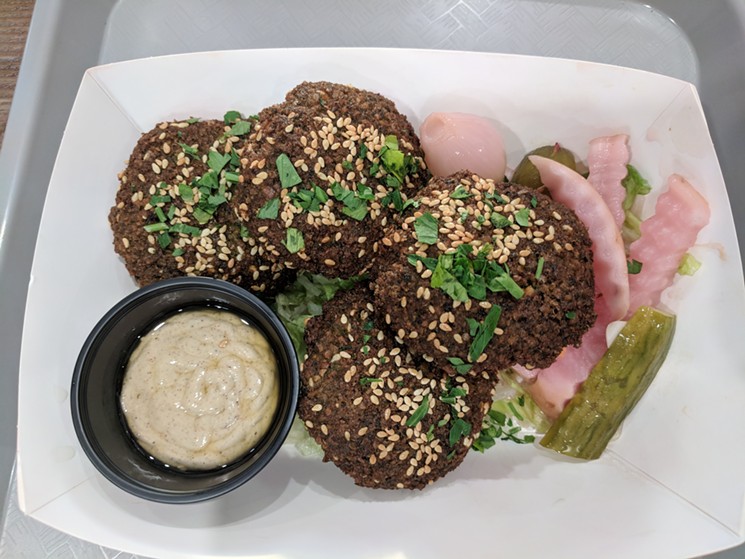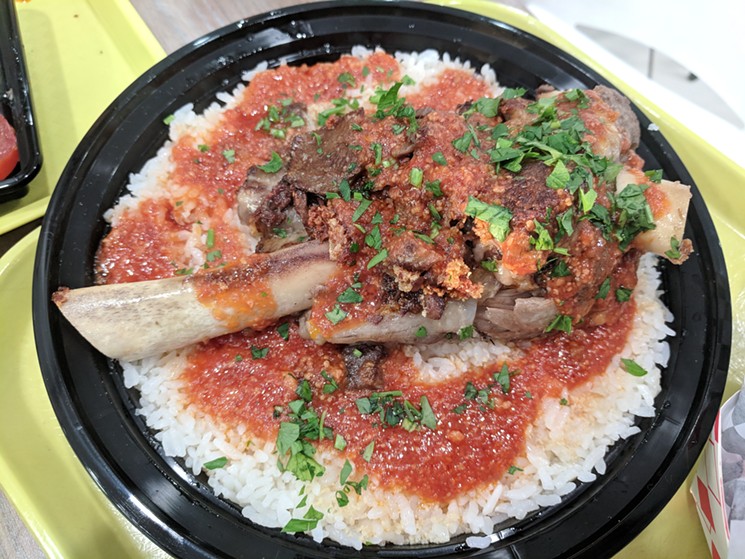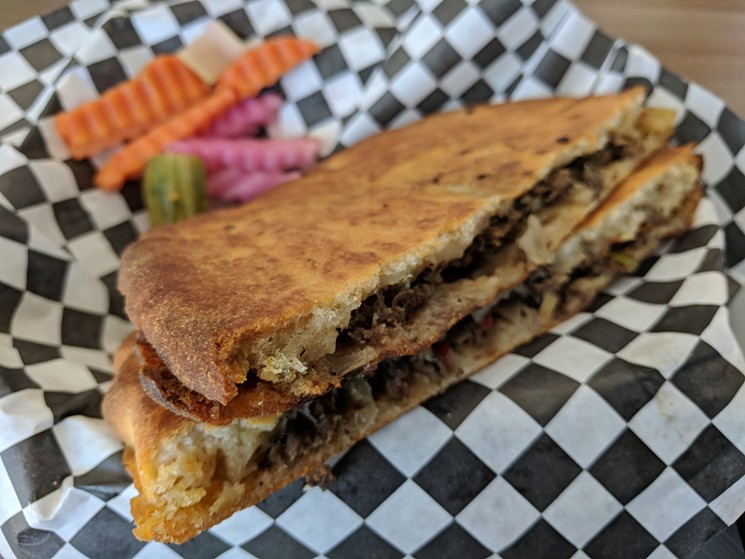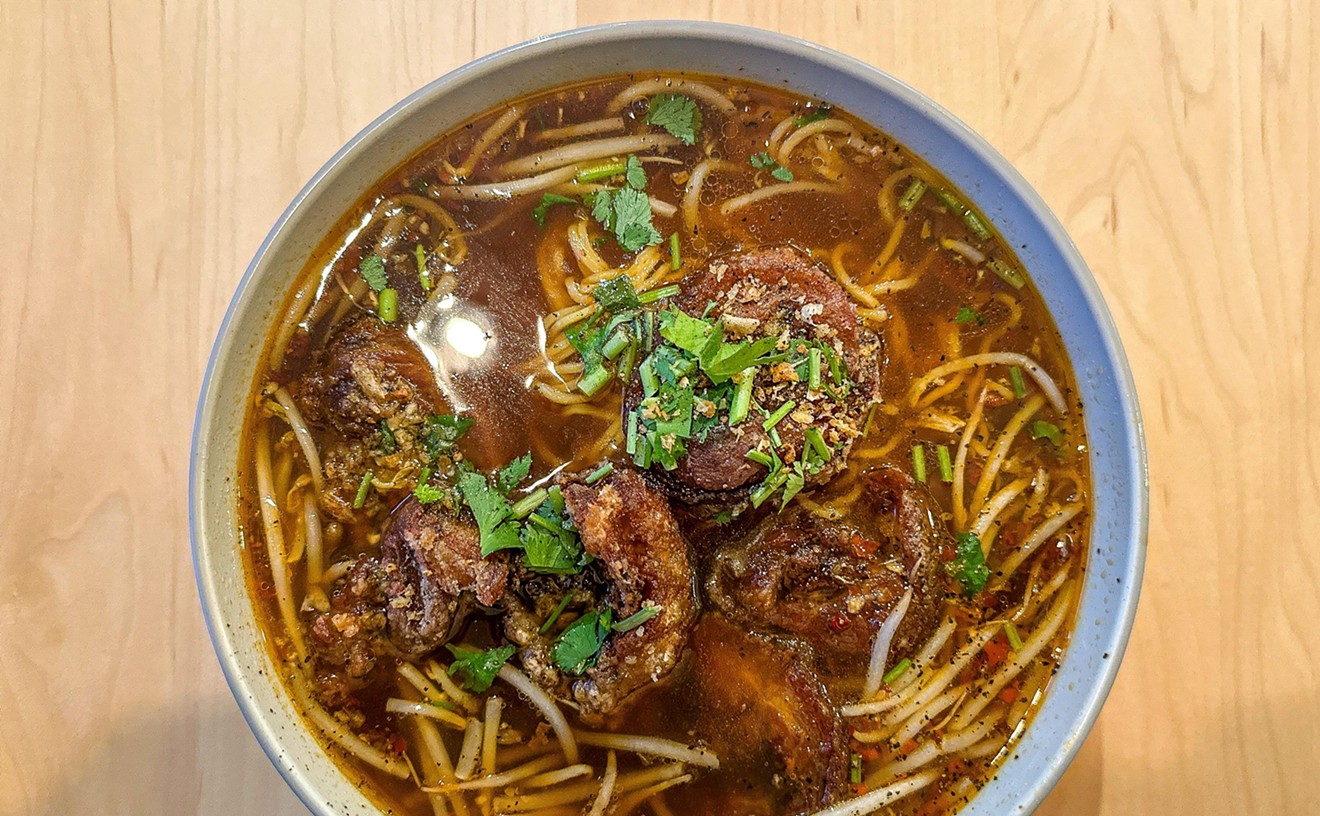It’s about time that koshari, the pride of Egypt, achieved that level of global ubiquity.
Like so many of the best foods, koshari’s origin story is rooted in necessity. It’s also a bit of a mystery. Shahrokh Parvi, writing for the Guardian, says the dish dates back at least 150 years, but Claudia Roden, the living-legend food writer born in Cairo to Syrian parents, claims that she never once saw or heard of koshari in her childhood.
Either way, authorities agree that the food was invented by poor working-class home cooks who needed to throw together a meal. An Egyptian chef in Canada once told me the legend: The unknown inventor dug through her pantry, cooking up rice, macaroni noodles, lentils and every other starch she could find, mixing them together and topping the bowl with hot sauce and fried onions. That’s still largely how it’s made today.
It’s a festival of carbohydrates. Instantly filling, straightforwardly delicious and naturally vegetarian, koshari takes a humble assembly of ingredients and produces magic. Homey and garlicky, it’s a darn near perfect food. And now, for the first time, it’s available in Dallas. Well, OK, Richardson.Egypt could not ask for a better ambassador to Texas than Mubrooka.
tweet this
Mubrooka Egyptian Street Food started out as a delivery-only service before Bosayna Elhouni and her husband, Sam Badran, found the space for their brick-and-mortar restaurant and opened it in early summer. At Mubrooka, koshari comes with all the standard trimmings — rice, lentils, macaroni noodles, tomato sauce, garlic vinegar, fried onions — plus a few spaghetti noodles for good measure ($7 regular, $8 large, but just order the large).
The components are all cooked separately, then combined to order. With the spicy version of the sauce, the dish becomes as comforting as a warm blanket. If a complaint must be made, the fried onions on top could be a little crispier. It’s hardly a big deal.
Koshari alone is reason to make the drive to Mubrooka (and reason alone for Mubrooka to open a few dozen more locations), but Elhouni and her team have more temptations in store. They’re one of the few kitchens in Texas turning out ta’meya, the Egyptian version of falafel, made with fava beans instead of chickpeas. Take a bite and the inside of the ta’meya balls will reveal a rich green (89 cents for one piece, $7 for a sandwich).
Carnivores should take a long look at the hawawshi sandwich, a round pita sliced open and filled with a layer of minced beef, onions, peppers and spices ($9). The sandwich gets baked in the oven until the bread is crisp and the filling inside is steaming hot — give it a minute to cool down or pinch the sides inward to allow steam to escape.
Elhouni has added new features to her menu since the early days, of which the most eye-catching is fattah ($15), a fork-tender lamb shank served on a bed of soft rice. If the lamb wasn’t sumptuous enough already, a well-spiced tomato sauce tops it off, along with a showering of parsley. Fattah translates literally to crumbs or, perhaps, croutons, hinting at the layer of pita bread concealed at the bottom of the plate, soaking up sauce and meat juices. Along with koshari, fattah can be the centerpiece of a feast.
And a feast at Mubrooka won’t all be centerpieces. There’s an extraordinary stable of side dishes, so many that ordering them gets a bit confusing. On the digital menu display behind the category, they’re grouped in categories, and I thought that I might need to order them in groups too. No such trouble — all the sides are equals (and all $3, or less if ordered as part of a combo meal).
They’re not quite all equal in my heart. The pickled tomatoes, with a garlicky rub on top, are an acquired taste; the fried eggplant is deliciously crisp. Baba ghanoush here is a little on the oily side, while vegetable moussaka — yes, like the Greek moussaka — is a rich, hearty tomato-based stew that tastes perfect spooned onto a wedge of pita bread. (Moussaka is $5.) There are also good crinkle-cut pickled turnips and carrots.
Elhouni and her family traveled a long road to open North Texas’ first Egyptian restaurant. She came to the United States to seek treatment for her daughter’s autism, which Egyptian schools were not equipped (or willing) to handle. Her husband was unable to join them in America for several years, but the family finally united in the Dallas area and began to plan their restaurant.
As Elhouni told the Observer in July, landlords were unconvinced by a group of restaurant-business rookies who had just moved to the United States. So Mubrooka, which means “blessed woman,” began as a delivery service operating out of a rented kitchen. A word-of-mouth following developed as early customers spread the gospel of koshari. That success helped them find, and finance, the Richardson store.
This success also means the owners can help promote Egyptian food to a local audience of diners who may not have ever considered that such a cuisine existed. Egypt could not ask for a better ambassador to Texas than Mubrooka.
“I’m telling you, every 400, 500 feet, you’ll find koshari. You find it everywhere,” Elhouni said of her home country. “All the people love it.”
With a little luck, the same description will apply to Dallas in 20 years. Wouldn’t that be nice?
Mubrooka Egyptian Street Food, 904 Audelia Rd. #300, Richardson. 469-778-1818, mubrooka.com. Open Monday through Saturday 11 a.m.-10 p.m. and Sunday 11 a.m.-8 p.m.

